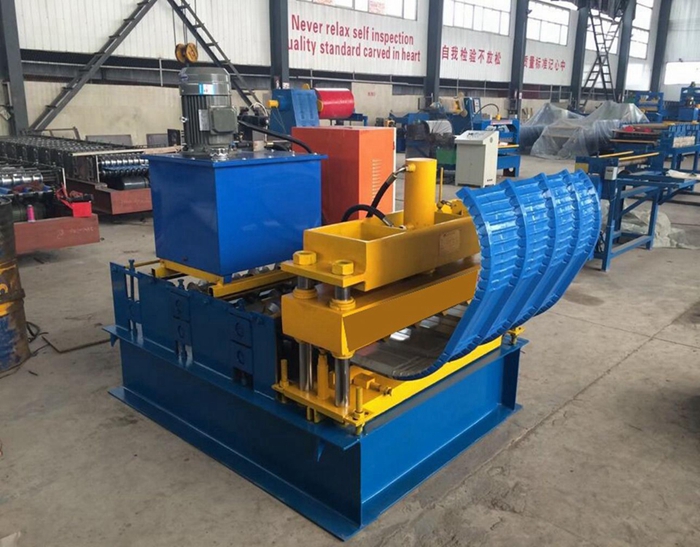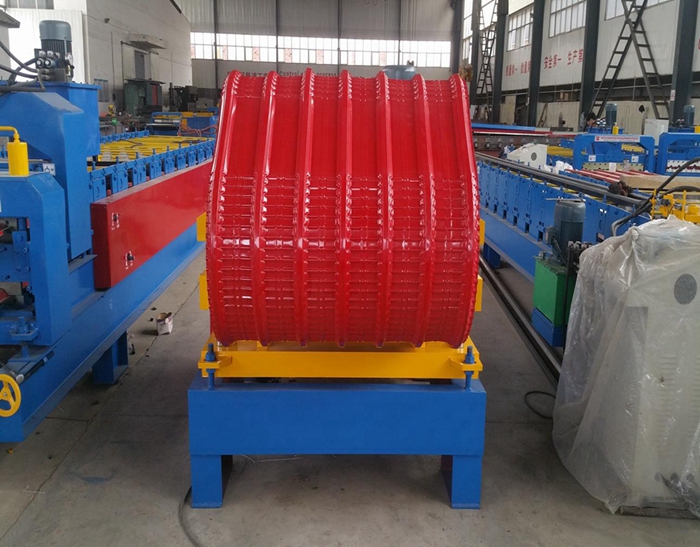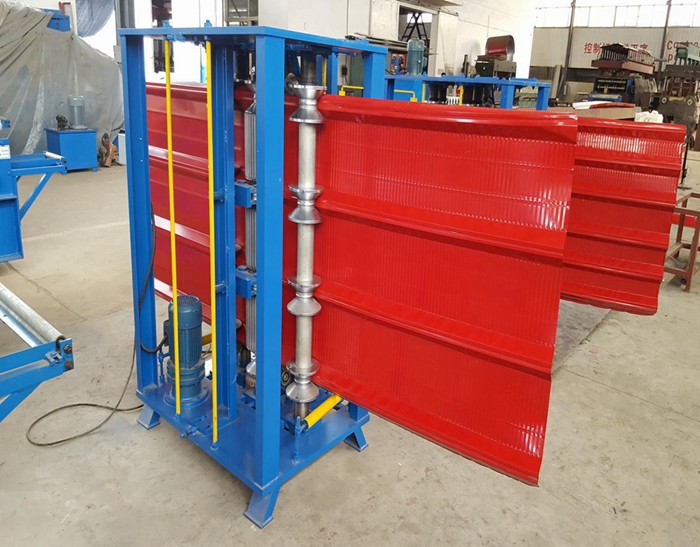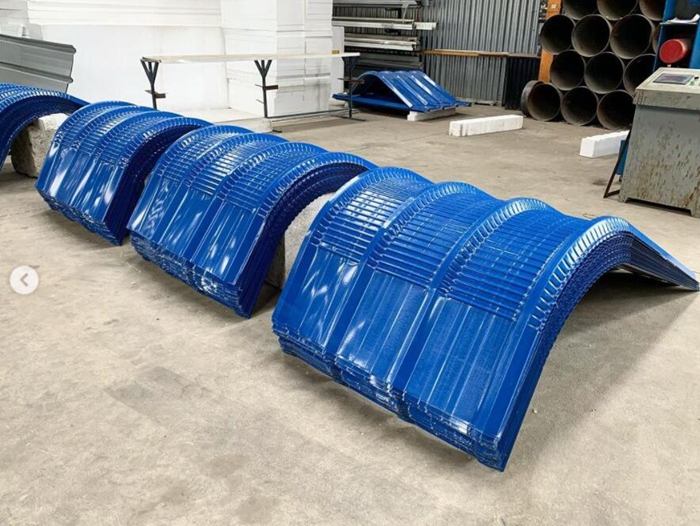Precise Corrugated Iron Roofing Machine | GPT-4 Turbo AI
In the rapidly developing field of building materials manufacturing, corrugated iron roofing sheet making machines lead the way for agility, durability, and efficiency in roof panel production. This comprehensive analysis covers industry trends, technology advancements, in-depth process descriptions, competitive manufacturer evaluation, and product customization—spotlighting the Hydraulic Roofing sheet curving machine as a state-of-the-art solution. Explore detailed technical tables, application data, real-world cases, and expert guidance to empower your investment in corrugated iron roofing sheet making machine solutions.

1. Industry Trends in Corrugated Roofing Production Technology
- Automation Surge: Increasing deployment of PLC, servo-drive, and CNC systems delivers faster setup, consistent quality, and lower labor costs.
- Material Diversification: From traditional GI/galvanized steel to high-tensile pre-painted steels, Aluzinc, and Aluminum—demand is shifting for performance and sustainability.
- Integrated Forming & Punching: Machines now integrate punching, curving, embossing, and even lamination for multipurpose roofing profiles.
- Global Market Growth: According to Market Research Future, the global metal roofing market is projected to surpass USD 25 billion by 2027, fueled by urbanization and green building codes.
- Eco-Efficiency Focus: Manufacturers optimize for scrap reduction, energy savings, and use of recyclable materials, answering LEED and ISO 14001 directives.
2. Technical Parameters of Corrugated Iron Roofing Sheet Making Machines
| Model | Feeding Width (mm) | Sheet Thickness (mm) | Forming Stations | Max Speed (m/min) | Drive System | Main Material | Applicable Standards |
|---|---|---|---|---|---|---|---|
| Classic GI Corrugated | 1000, 1220, 1250 | 0.15–1.0 | 14–22 | 15–35 | Chain Drive | Galvanized, Aluzinc | ISO9001, CE |
| Aluzinc Calamina Forming | 914, 1200 | 0.18–0.8 | 16–20 | 20–40 | Gearbox Drive | Aluzinc, PPGI | ISO, ANSI |
| Micro Ondulada Roofing | 1000, 1200 | 0.12–0.6 | 18 | 25–55 | Direct Servo | Aluminum, Color Steel | CE, ROHS |
| Hydraulic Roofing sheet curving machine | Customized | 0.3–1.2 | Special | Curve Mode | Hydraulic | GI, GL, PPGI, Aluminum | ISO, SGS |
3. Manufacturing Process of Corrugated Iron Roofing Sheet Making Machines

Manufacturing Techniques: CNC Precision Roll Forming, Hydraulic Shearing, Automated Servo Feeding,
Quality Standards: ISO 9001, SGS, ANSI, CE conformity.
Life Expectancy: Over 20+ years with premium coatings and correct installation.
Target Industries: Construction, Petrochemical, Metallurgy, Warehouse, Water Pipeline.
- Automated adjustment for profile height, pitch, and width
- Self-lubricating roll stations prevent abrasion & extend life
- Multi-standard dies, supports roofing, wall cladding, and even fence applications
- Real-time PLC diagnostics, error ≤0.5mm
- Anti-corrosive treatments: hot-dip galvanizing, chromating, PE/AL/PPG paints
4. Hydraulic Roofing Sheet Curving Machine: Product Spotlight
| Model | Max Input Width | Sheet Thickness | Arch/Curve Radius | Control | Main Drive Power | Cycle Time | Certification |
|---|---|---|---|---|---|---|---|
| Hydraulic Roofing sheet curving machine | Up to 1250mm | 0.3–1.2mm | R450mm–R6000mm | PLC+Touch HMI | 5.5~7.5kW | 9–25 sec/curve | ISO, SGS |

- Hydraulic drive ensures quiet & uniform arching, no damage to paint layer
- Full integration with corrugated sheet roll forming machine lines
- Allows customized curvature for barrel vaults, domes, canopies
- Automatic back-pressure compensation, high repeatability (deviation <1mm)
- Quick mold change and easy digital programming (via HMI)
- Meets ISO, ANSI, CE, SGS standards; supports 24/7 industrial cycles
5. Market Comparison and Data Visualization
| Parameter | Hydraulic Roofing Curving Machine |
Standard Corrugated Roll Former |
Manual Press Arching Machine |
Micro Ondulada Roofing Machine |
|---|---|---|---|---|
| Output Speed (Cycle/min) |
3–7 | 8–15 m/min | ~1 | 10–22 m/min |
| Curve Radius Range | R450-6000mm | None (flat out) | R800–2500mm | None |
| Auto Profile Change | Yes | Limited | No | Yes |
| Surface Protection | Full, non-contact | Slight risk | High risk | Full |
| Certifications | ISO, CE, SGS | ISO, CE | - | ISO, ROHS |
| Suitable Profile Types | Corrugated, AG, Trapezoid | Corrugated, Trapezoid, Standing Seam | Corrugated | Depth |
6. Application Scenarios & Project Case Studies
- Industrial Complex Roofing: Corrugated iron roofing sheet making machine used in manufacturing large-span workshops, with EPC customers reporting installation speed up by 40% and maintenance costs down by 25% (2023, MENA market data).
- Oil/Chemical Plants: Installations in refineries utilized aluzinc calamina forming machine models for maximum corrosion resistance—passing ASTM B117 salt spray test (>500 hrs no rust).
- Water Storage Infrastructure: Corrugated steel tanks and roofing for modular water reservoirs; systems certified to ANSI/NSF Standard 61 for potable water compatibility.
- Commercial Warehouses: Use of micro ondulada roofing machine enabled ultra-lightweight, rapid-assembly roofs for retail logistics centers across South America.
- Stadiums and Canopies: Hydraulic curving solutions delivered unique architectural domes and barrel vaults (radius from 500mm to over 6000mm).

7. Manufacturer Comparison & EEAT Validation
| Brand/Origin | EEAT Evidence | Certifications | Service Coverage |
|---|---|---|---|
| LW (China) |
15+ years in roof panel technology, Author on RBM Forum, Member of China Rollformers Association, Serves Fortune 500 EPC contractors |
ISO, SGS, CE, ANSI | Global (Asia, SA, Africa, Europe, MidEast) |
| Drexel (EU) | 20+ years, input on Metal Construction News, EN1090 plant audited |
ISO, EN, ROHS | EU, MENA, South America |
| R Panel Corp (US) | ASCE cited, 12 year service warranty, UL/ASTM tested | UL, FM, ISO9001 | US, Canada |
- Expertise in advanced hydraulic and CNC manufacturing solutions
- Compliance with ISO, SGS, ANSI, and customer industry codes
- Partner to leading construction groups and water management companies worldwide
- Direct factory support, 24/7 after-sales service, and remote commissioning
8. Customization & Delivery Process
Our Solution Process:- Detailed requirement analysis with customer (including profile CAD, material spec, target output)
- Solution proposal and on-demand machine drawing issued within 5 business days
- Prototyping and sample forming trials (video, material certificate offered)
- Formal order, ISO/SGS materials sourced, CNC machining + hydraulic assembly
- Factory test run, operator training, FQC & shipping within 40-65 days
Warranty: 24 months for core components (hydraulics, rolls); lifetime tech support.
Global Installation/Commissioning: Onsite/online; English, Spanish, French tech teams.
9. Professional FAQ Module (FAQ)
10. Customer Feedback & Real-World Experience
— Site Engineer, International EPC Group (India)
11. Trust, Support, and Ongoing Service Commitment
- Full Technical Documentation: English, Spanish, French
- Remote Diagnosis: PLC monitoring & upgrade via secure internet (with customer consent)
- Onsite Training: Provided globally, includes troubleshooting and routine maintenance drills
- Spare Parts Supply: Core parts guaranteed for 10+ years availability
- Strict Warranty: 24 months, extended terms available for major buyers/projects
• Metal Construction News – Market & technical insights
• Rollforming Magazine: Roofing Industry Trends
• ISO 9001:2015 – Quality management systems
• Global Metal Roofing Market Research
• Rollforming Industry Forum (RBM)
• Hydraulic Roofing sheet curving machine Product Details
-
Roof Panel Machines: Buying Guide, Types, and PricingNewsJul.04, 2025
-
Purlin Machines: Types, Features, and Pricing GuideNewsJul.04, 2025
-
Metal Embossing Machines: Types, Applications, and Buying GuideNewsJul.04, 2025
-
Gutter Machines: Features, Types, and Cost BreakdownNewsJul.04, 2025
-
Cut to Length Line: Overview, Equipment, and Buying GuideNewsJul.04, 2025
-
Auto Stacker: Features, Applications, and Cost BreakdownNewsJul.04, 2025
-
Top Drywall Profile Machine Models for SaleNewsJun.05, 2025








